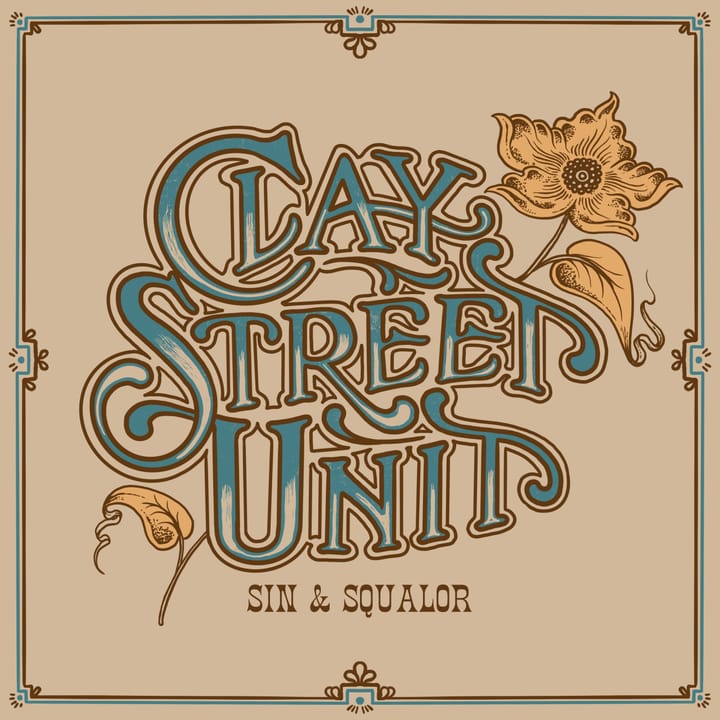I'm not sure what prompted me to play Bob Martin's Midwest Farm Disaster when I came across it while cleaning my office this fall. I knew that I'd never heard of Martin and that I couldn't remember the promo advance arriving in the mail. It was more than likely, in any case, that I would have recycled the accompanying paperwork without reading it.
Maybe it was the sepia-toned cover photo depicting a fraught young man Martin, it seemed safe to assume in denim and boots, cradling an acoustic guitar. He's pictured sitting on the back of an enormous brown lop-eared hog "the last specimen of the Byfield Pig," according to the liner notes reproduced from the 1972 LP (of which the CD is a reissue). A rope hangs around the pig's immense shoulders and chest; nearby, a skeleton, unable to stand on its feet, is futilely trying, much as Martin's portrayal of farmers struggling to hang on to their inheritances, to lead the singer and the animal along a rutted dirt road.
The vintage look of the CD its lyrics printed on the back cover, alongside and underneath a photo of a studious-looking Martin framed as if for a locket intrigued me as well. As did the fact that the record had been made at RCA Studios in Nashville with a rhythm section comprised of the regal likes of David Briggs, Norbert Putnam and Kenny Buttrey (misspelled "Butrey").
The cantering first bars of the opening track stripped-down Nashville Sound a la "Saginaw, Michigan" or John Wesley Harding announces the intimate aesthetic of those unassailable musicians. Their accompaniment contrasts sharply with the keening rasp of the singer, a voice that reminds me of a cross between John Prine and Willis Alan Ramsey, but especially Ramsey circa his sublime self-titled LP which, as it happens, also was released in 1972.
The record really got its hooks into me, though, with the third track, a dirge-like lament called "Mill Town". As laconic as it is epic, it opens with a devastating confession:
I was born in the turning of the tide
Just this side of a mill town by the sea
With nothing on the table but our pride
And the winter wind came wailing in
Through the crack in the downstairs hall
But all and all they were good times.
(excerpt of "Mill Town" from Midwest Farm Disaster)
Closer to Hard Times or The Grapes Of Wrath than your garden-variety singer-songwriter fare, that's for sure. "Old Rass" paints a scene as dissolute as anything out of Huysmans or Celine, with Martin singing of "Grandpa sittin' in the Old Moose Cafe, drinkin' liquor from a puddle on the floor."
Dispatches from prison, a VFW wingding and Salvation Army street corners are here as well, but always with the driest of ironies and without a hint of condescension. Nowhere is this more the case than in the opening stanza of "Frog Dick, South Dakota", its lines intoned in so flat an affect that Martin could just as easily be reading the daily farm report:
I wish I could go home again to Frog Dick, South Dakota
For the annual sheep castration celebration the last week of July
How fondly I remember every ram we did dismember
How could I think to leave the town
That was the toilet seat center of the world?
(excerpt of "Frog Dick, South Dakota" from Midwest Farm Disaster)
Wickedly funny moments such as this relieve the pall of gloom that hangs over the record, much of it attributable to joblessness, bank foreclosures and impending recession crises eerily akin to those that the United States faces today.
I had played Martin's record more times than I'd care to admit, content to marvel at its mysteries, humor and unlikely relevance, without knowing more, before I finally got around to googling his name and visiting the website of Riversong Records, the label that reissued Midwest Farm Disaster. When I did, I not only discovered that the native of Lowell, Massachusetts, is still alive, but that he had released two or three well-received if little-heard records in the last decade and that he has what appears to be a live album coming out next year.
I'll seek each of those out in time, but for now I'm content to keep company with this wondrously human record that I didn't know existed until I nearly threw it away earlier this fall. The song that will haunt me most, harmonically and otherwise, long after I've filed it back in the stacks, is "Blind Marie", a paean to a long-forgotten street singer of sanctified blues. Pining to hear her, a singer as mythic and obscure as Martin himself would become, he sings:
Rainy days she always plays
A song of where she's been
Full of gypsy lies that could make you cry
Just to hear them all again
But she's been gone for just so long
I can't remember when
I've heard that Jesus song for me
Blind Marie.
Martin's record might not offer Jesus, but if you listen at all, his lies, every one of them true, will make you cry, and offer a measure of redemption.
Read next

ALBUM REVIEW: Clay Street Unit Debuts Ear Worm, Fearless Newgrass on ‘Sin & Squalor’
It’s likely difficult being a new string band today. The role comes retrofitted with some onerous responsibilities. There are certain tenets to uphold, time-tested musical traditions to follow, duty weighing on every roll and break.
With the release of Sin & Squalor, however, it seems newcomers Clay Street Unit

ALBUM REVIEW: Boy Golden Turns Suffering into Hope on ‘Best of Our Possible Lives’
Boy Golden (the stage name of singer/songwriter Liam Duncan) centers his fifth studio record, Best of Our Possible Lives, around the lead single and opening track, “Suffer.” Dirty, cosmic guitars swirl around similarly muddy drums that emit a transcendent throb. Razor-sharp lyrics (e.g., “I want to know where

ALBUM REVIEW: Jeremy Ivey’s Home-Recorded 'Its Shape Will Reveal Itself' is Unvarnished and Honest
Jeremy Ivey’s “Walk With Me” rides slow on ambling cowboy chords, all at once cinematic and intimate. Its sound is more western than most of Ivey’s new Its Shape Will Reveal Itself. Tape wobble distorts Ivey’s voice as he sings of modern confusion. It fits the moment–

Comments ()